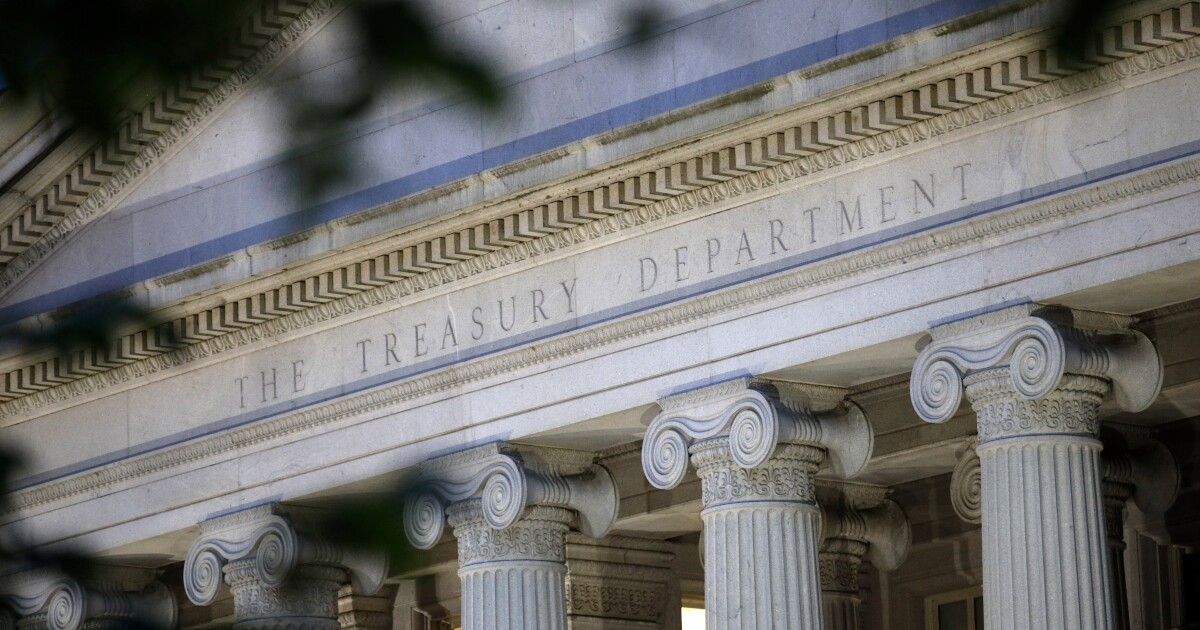

The Treasury Department issued a proposed rule Tuesday that would significantly boost the number of available tax credits for clean energy companies that pay their workers prevailing wages and utilize registered apprentices as part of an effort to create good-paying jobs in the clean energy space.
According to the proposed rulemaking, companies who adhere to the prevailing wage incentives practices outlined under the Inflation Reduction Act will be eligible for up to five times the value of certain clean energy tax credits.
MARK MEADOWS COURT HEARING IS FIRST BIG TEST FOR FANI WILLIS’S TRUMP RICO CASE
Speaking on a call Monday, White House clean energy adviser John Podesta described the enhanced tax credit provision as “one of the most powerful ways that targeted investments in workers and communities have been woven into the fabric of the Inflation Reduction Act.”
“If businesses do their part to create good paying jobs and bolster the pipeline in the clean energy industry, they’ll reap the rewards with both a strong, well-trained, dependable workforce as well as these enhanced tax credits,” he said.
According to an analysis by Climate Power, clean energy businesses have announced or moved forward with over 170,000 jobs across 44 states over the past year. Other external reports have found that the Inflation Reduction Act will create more than 1.5 million jobs in clean energy space over the next decade.
Biden administration officials touted the enhanced tax credits as a way to develop and retain a skilled workforce in the clean energy space, noting that building at the pace needed to meet its clean energy and emissions reduction goals will require “tens of thousands of carpenters, electricians, and construction workers.”
The proposed rulemaking is intended to give a shot in the arm to companies who adhere to the Inflation Reduction Act’s prevailing wage incentive and, in turn, drive up the number of good-paying clean energy jobs available nationwide.
It’s the first time the prevailing wage requirements, which set a minimum wage that a majority of workers on similar projects must be paid, will be applied to the clean energy sector.
It also comes at a critical time for President Joe Biden, who has struggled to balance his goals on electric vehicles and clean energy manufacturing without also alienating his longtime union allies in the process.
Most notably, his ambitious EV goals have sparked the ire of the United Auto Workers, the nation’s largest auto union that has historically endorsed Democrats but has soured on Biden amid his push for EVs and what they view as his lack of commitment to workers.
UAW President Shawn Fain blasted the Biden administration’s plan to lend $9.2 billion to two U.S. battery projects in Kentucky and Tennessee, both right-to-work states, calling the loan a massive “giveaway” with “no consideration for wages, working conditions, union rights or retirement security” that would help create low-paying jobs.
“Why is Joe Biden’s administration facilitating this corporate greed with taxpayer money?” he said in a statement.
Ensuring middle-class compensation for workers at EV manufacturing facilities is a key issue in contract negotiations between UAW and the Big Three automakers in Detroit, which expire Sept. 14.
Currently, they remain at an impasse, and UAW has said its members overwhelmingly voted to strike rather than extend the contract if they do not reach an agreement.
“We’re fed up,” Fain said this week, listing a series of demands. “We’ve sat back for decades while these companies continue to just take and take and take from us.”
CLICK HERE TO READ MORE FROM THE WASHINGTON EXAMINER
Senior administration officials touted the tax credits, which will help ensure compliance with Inflation Reduction Act incentives and encourage employers to develop “worker-centric” practices, as a way of helping bridge the gap between labor and the clean energy transition.
Biden and Vice President Kamala Harris “aren’t just working to create a lot of jobs,” Podesta said Monday. “They’re working to create good paying jobs, jobs that you could support a family on, that offer a chance to join a union, jobs that attract and support a workforce that looks like America, jobs that can lead to an entire career in clean energy. “





